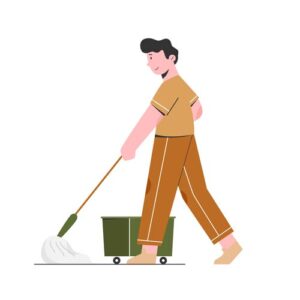
Connect with Trusted Cleaners in Your Community | Trader Street
Find Your Perfect Cleaning Match – Whether You’re Hiring or Offering Cleaning Services
Find Your Perfect Cleaning Match – Whether You’re Hiring or Offering Services
A clean home shouldn’t come with hidden fees, restrictive contracts, or platform commissions. Trader Street connects homeowners directly with professional cleaners in their local area, creating genuine relationships built on trust, transparency, and fair pricing.
No middleman fees, no complicated booking systems – just real connections between neighbours who care about quality cleaning services.

For Homeowners: Find Your Ideal Cleaner
Life’s too short to spend your weekends scrubbing floors. Trader Street makes it simple to connect with experienced cleaners in your neighbourhood who offer exactly the service you need, at prices you can actually afford.
Why Choose Trader Street for Cleaning Services?
- Direct Communication – Message cleaners directly to discuss your specific requirements, preferred products, and cleaning schedules. Build a relationship before committing.
- Transparent Pricing – Negotiate rates that work for both parties. No hidden platform fees or surprise charges. Pay directly and save an average of 20-30% compared to agency prices.
- Flexible Arrangements – Need weekly cleans? One-off deep cleaning? End of tenancy? Work out custom arrangements that fit your schedule and budget.
- Community-Based – Connect with cleaners in your local area who understand your neighbourhood and can respond quickly when you need them.
- Variety of Services – From regular domestic cleaning to specialist services like carpet cleaning, oven cleaning, and post-renovation cleans.
How It Works for Home Owners
- Browse Local Cleaners – Search profiles of professional cleaners in your area. View their experience, services offered, rates, and availability.
- Connect Directly – Message potential cleaners to discuss your needs. Ask about their experience, preferred cleaning products, and availability.
- Arrange Service – Work out scheduling, pricing, and specific cleaning requirements directly. Create arrangements that suit everyone.
- Build Lasting Relationships – Find a regular cleaner you trust. No need to explain your preferences repeatedly or deal with different cleaners each week.
Popular Services Available
- Regular domestic cleaning (weekly, fortnightly, monthly)
- One-off deep cleaning
- End of tenancy cleaning
- Post-renovation cleaning
- Carpet and upholstery cleaning
- Oven and appliance cleaning
- Window cleaning
- Office and commercial cleaning
- Eco-friendly cleaning services
- Spring cleaning packages
- Moving in/moving out cleans
- Holiday let turnaround cleaning

For Cleaners: Grow Your Cleaning Business
Turn your cleaning skills into a thriving business. Trader Street provides the platform to connect with homeowners seeking reliable, trustworthy cleaners like you. Set your own rates, choose your clients, and build your business on your terms.
Why Offer Services Through Trader Street?
Keep Your Full Earnings – Set your own rates and keep what you charge. No commission fees eating into your income.
Build Your Reputation – Create a compelling profile showcasing your experience, services, and specialisms. Collect reviews from satisfied clients.
Choose Your Clients – Accept only the jobs that fit your schedule and service offerings. You’re in complete control of your workload.
Direct Client Relationships – Build lasting connections with homeowners. Become their go-to cleaner for regular bookings and develop a loyal client base.
Flexibility – Work as much or as little as you want. Perfect for full-time cleaning businesses or those seeking supplemental income.
No Lock-In Contracts – Join and leave as you please. No long-term commitments or restrictive agreements.
How It Works for Cleaners
- Create Your Profile – Showcase your experience, services offered, rates, and availability. Add photos of your work to stand out.
- Receive Enquiries – Homeowners in your area will find your profile and message you about their cleaning needs.
- Discuss Requirements – Chat directly with potential clients about their expectations, frequency, and any special requirements.
- Agree on Terms – Set your rates, schedule, and payment terms directly. Build the business you want.
- Deliver Excellent Service – Do what you do best and build your reputation through quality work and satisfied clients.
Services You Can Offer
- Regular domestic cleaning
- Deep cleaning services
- Specialist cleaning (ovens, carpets, windows)
- Commercial cleaning
- Eco-friendly cleaning options
- End of tenancy cleaning
- Post-construction cleaning
- And any other cleaning service you specialise in

Why Trader Street is Different
For Everyone
No Hidden Fees – Unlike cleaning agencies and platform marketplaces, we don’t take a cut of your earnings or add fees to the customer’s bill. What you agree is what you pay or receive.
Real Community Connections – Build genuine relationships with local cleaners or clients. No faceless corporation between you.
Your Business, Your Way – Set your own rates, choose your schedule, and decide which jobs you take. Complete autonomy.
Transparent Communication – Direct messaging means you can discuss everything upfront. No surprises, no miscommunication.
Verified Reviews – Real feedback from real customers helps everyone make informed decisions.
Ready to Get Started?
Homeowners: Browse local cleaners in your area and start connecting with professionals who can transform your home.
Cleaners: Create your profile today and start building your client base with no fees, no commissions, and complete control.
Join Trader Street today and discover the smarter way to find or offer cleaning services in your community.
Frequently Asked Questions for Home/Office Owners
How do I know if a cleaner is trustworthy?
What if I need same-day cleaning help?
How do payments work?
Should I get multiple quotes?
Do I need to provide cleaning products and equipment?
What if I’m not satisfied with the cleaning?
Should my cleaner have insurance?
Can I hire the same cleaner regularly?
How much notice do I need to give for cancellations?
Do I need to be home during the cleaning?
Frequently Asked Questions for Cleaners
Do I need professional qualifications to offer cleaning services?
How do I set competitive rates?
What insurance do I need?
How do I handle difficult clients or complaints?
Should I bring my own supplies or use the client’s?
How do I grow my client base?
What cleaning services should I offer?
How should I handle keys and access to clients’ homes?
What about payment disputes?
Can I refuse certain types of cleaning jobs?
Ready to Get Started?
Whether you’re looking for the perfect cleaner or ready to turn your cleaning skills into income, Trader Street makes it simple to connect with your local cleaner or client.
